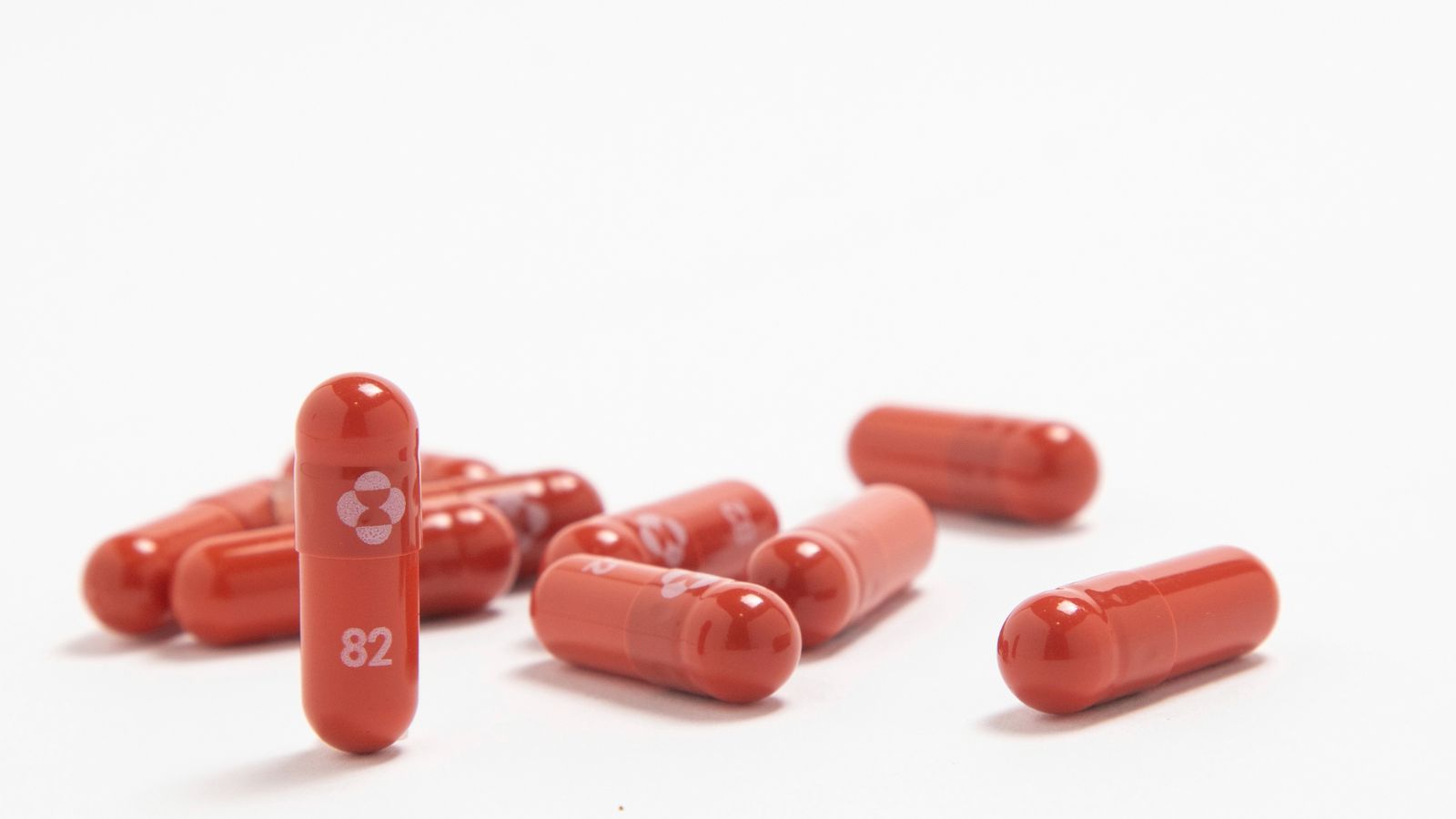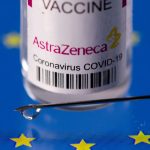Pfizer has signed a deal with a UN-backed group allowing other manufacturers to make its experimental COVID-19 pill, potentially making the drug available to more than half of the world’s population.
The US pharmaceutical giant said on Tuesday that it would grant a licence to the Geneva-based Medicines Patent Pool, which would let generic drug companies produce the antiviral pill for use in 95 countries, reaching 53% of the world’s population.
Pfizer has agreed to forego royalties on sales in low-income countries, and will waive royalties on sales in all countries covered by the agreement, while COVID-19 remains a public health emergency.
COVID news live: Sturgeon considers possible fresh restrictions in Scotland
Pfizer will work with @medspatentpool to make the Pfizer COVID-19 oral antiviral candidate, if approved, available in low- and middle-income countries that make up ~53% of the world’s population. https://t.co/83QBB7lvJZ
Health officials said the fact that the deal was struck before the drug’s approval for use anywhere could help end the pandemic faster.
Esteban Burrone, head of policy at the Medicines Patent Pool, said: “It’s quite significant that we will be able to provide access to a drug that appears to be effective and has just been developed, to more than four billion people”.
He estimated that other manufacturers would be able to start producing the pill within months, but acknowledged the agreement wouldn’t please everyone.
Researchers find way to filter coronavirus particles out of the air
COVID-19: Amazon workers were left ‘terrified and powerless’ after it concealed coronavirus cases, California says
COVID-19: Boosters not only replenish immunity against transmission but lift it too, new data shows
“We try to strike a very delicate balance between the interests of the (company), the sustainability required by generic producers and most importantly, the public health needs in lower and middle-income countries,” Mr Burrone said.
The deal excludes certain large countries that have suffered devastating coronavirus outbreaks. For example, while a Brazilian drug company could get a licence to make the pill for export to other countries, the medicine could not be made generically for use in Brazil.
Doctors Without Borders said it was “disheartened” that the Pfizer deal does not make the drug available to the entire world, noting that the agreement announced Tuesday also excludes countries including China, Argentina and Thailand.
“The world knows by now that access to COVID-19 medical tools needs to be guaranteed for everyone, everywhere, if we really want to control this pandemic,” said Yuanqiong Hu, a senior legal policy adviser at Doctors Without Borders.
Earlier this month, Pfizer claimed its pill cut the risk of hospitalisation and death by nearly 90% in mild to moderate COVID cases, causing independent experts to recommend halting the company’s study based on its promising results.
Pfizer said it will ask the US Food and Drug Administration and other regulators to authorise the pill as soon as possible.
Since the start of the pandemic, researchers worldwide have raced to develop a pill to treat COVID-19 that can be taken at home easily to ease symptoms, as currently most treatments must be delivered intravenously or by injection.
Earlier this month Britain authorized Merck’s COVID-19 pill, which is pending approval elsewhere.
Merck has also agreed with the Medicines Patent Pool to let other companies produce its molnupiravir pill, making it available in 105 poorer countries.
These agreements to share COVID-19 drug patents stands in contrast to the refusal of Pfizer and other vaccine-makers to release their vaccine recipes for wider production.
Follow the Daily podcast on Apple Podcasts, Google Podcasts, Spotify, Spreaker
Fewer than 1% of Pfizer’s COVID jabs have gone to poorer countries.
A hub, set up by the World Health Organisation in South Africa designed to share messenger RNA vaccine recipes and technologies, has not attracted any pharmaceutical participation.






















